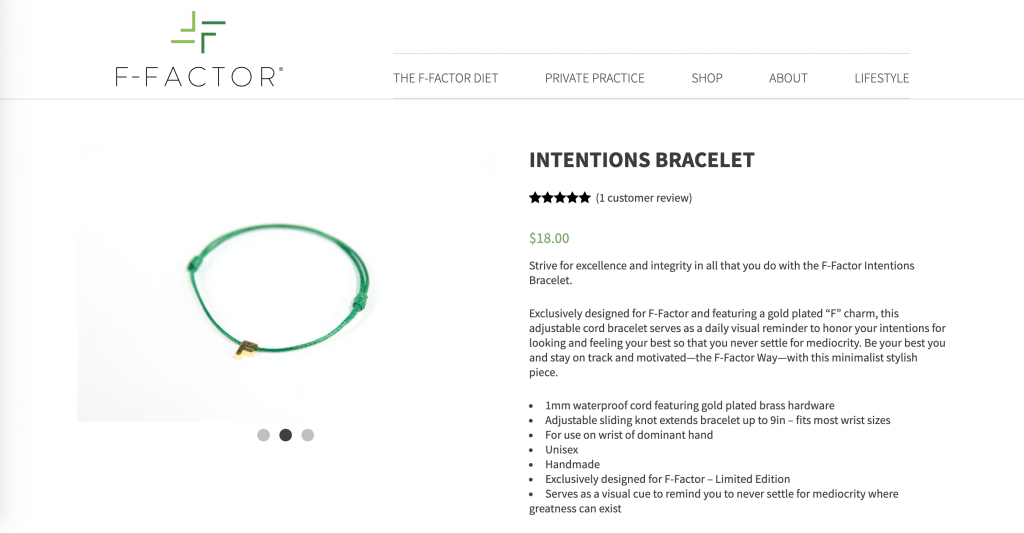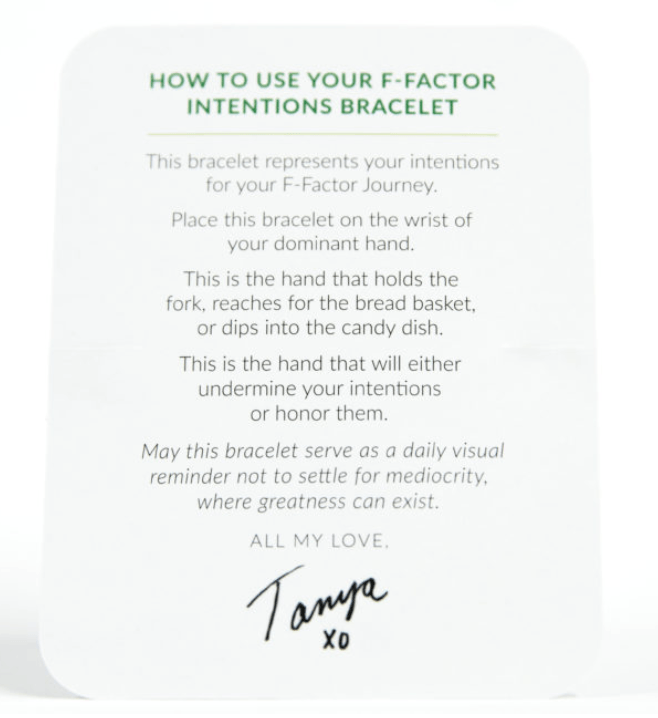If you landed on this page – you’ve probably heard of some F Factor controversy either on social media or in the news lately. Honestly the pieces to the story are a bit confusing and as someone who has promoted (unsponsored) the use of F Factor products in the past, I thought it could be helpful to give a little summary as to what is happening now.
My disclaimers.
One – I am not a medical professional nor am I a professional journalist. I’m a blogger and content creator. All opinions on this blog are personal and my own. You can refer to my official disclosure for more information.
Two – Everything discussed in this blog post is 1) alleged and 2) a summary of only the things that are backed up with links and screenshots, all with the intent to help you better understand what is happening – not to make an opinion or claim on the truth of the allegations.
What is F Factor?
The F Factor Diet, verbatim from their website, is “a high fiber diet plan for weight loss.” The official F Factor website states the diet has been around for 20 years. The “F” in F Factor stands for fiber.
[Fiber] is the secret to losing weight without hunger. Fiber is the zero-calorie, non-digestible part of a carbohydrate. The more fiber a food has, the more full you will feel after eating, leading you to consume less throughout the day. In addition, fiber has zero calories — so you get to fill up without filling out. Most diets focus on what foods to avoid, while The F-Factor Program is about incorporating the right high-fiber foods into your diet.
https://www.ffactor.com/faq/
The F Factor website FAQ states that the average American consumes only 15g of fiber a day vs the recommended 28g a day by the FDA (which I was able to accurately fact check as true via the 2015-2020 U.S. Dietary Guidelines – dietary fiber is listed in the section “Underconsumed Nutrients and Nutrients of Public Health Concern”). The F-Factor Program recommends “35+ grams of fiber for women and 38+ grams of fiber for men,” which exceeds the FDA daily value amount by +22% for women and +30% for men (although the amount F Factor recommends for men is slightly more aligned to USDA recommendations).
The long story short? F Factor is a program that via its book and journal prescribe a high fiber, high protein diet with the goal of weight loss.

So – WTF is happening? Breaking down the F Factor controversy.
So what exactly is the F Factor controversy? Well, there are a few claims being made – we’ll get there – but let’s quickly discuss a primary figure in the story and how we got where we are today.
Who is Emily Gellis Lande?
Emily Gellis Lande is a New York Based lifestyle (primarily fashion) content creator. As Emily tells the story in not one, but two podcast interviews – earlier in the year several anonymous social media accounts began posting stories from (alleged? claimed? Not sure the proper legal term here) F Factor Diet product users – and the claims were pretty hairy. Over time, more and more people began sending Emily DMs with personal stories about their experience on F Factor – from gastric distress to other more serious health claims. You can see all of Emily’s saved screenshots from users in her Instagram Stories Highlights (labeled as “Discussions”).
As Emily tells it – these messages all just started to flood into her account and as she began to publicize the story, more and more messages came through. Essentially Emily’s account became the platform for people to voice their experiences and their concerns with the diet.
What are the accusations being made?
The F Factor controversy has a handful of different alleged claims being made.
Accusation 1: the F Factor produced products may be unsafe for use.
This accusation is by far the most “serious” – and also the accusation with the least amount of links and screenshots I can provide for you. Emily’s saved Instagram Story highlights have a great deal of anonymous claims about health issues from users of F Factor products, but very few people have come forward to put their names on the record. The anonymous sources are highlighted in New York Times’ latest article on the saga. Insider did speak on the record with a small handful of folks who followed the F Factor diet.
There is a Prop 65 warning on the F Factor products and F Factor has released a CoA (certificate of analysis) for their chocolate powder on social media on August 27, but has not done so for their most popular flavors (vanilla and unflavored) or for their bars (as of 9/3/20).
I was able via a simple Google search to find a webpage on the F Factor site, though, with several CoAs. It looks like this page is being updated regularly, regardless of the webpage being publicized by the company on their social media accounts.
F Factor’s Prop 65 warning is likely due to the trace amounts of lead and arsenic found in the products, as exhibited by the release of the CoAs. I am not a scientist nor am I a medical professional, so I cannot make any assessments as to the safety of the levels of arsenic and lead in F Factor products – we can only confirm via the CoAs that the products do contain them.
Another component to this accusation is the use of guar gum in the products – which some sources (none are scientific enough for me to feel comfortable linking) feel is unsafe at high levels. While it’s a bit tough to assess the “safety” of guar gum (especially given the safety is likely dependent on how much you consume), it is recommended by valid sources to get most of your fiber from whole foods rather than supplements (like those containing guar gum).
Accusation 2: the F Factor diet may encourage (or create) disordered eating habits.
Another accusation that has been thrown F Factor’s way is that the diet may either encourage or even manifest disordered eating tendencies. Here are the facts:
- The diet encourages journaling as part of the program, particularly in the beginning. They sell a journal to do so.
- There is counting involved. You do need to count net carbs.
- The founder of F Factor has posted anti-body positivity Instagram posts in the past (such as a photo of a thin, lean female stomach with text overlay stating “so…you’d really rather have a bag of chips than look like this?”).
- F Factor to this day (9/3/20) sells an “intentions bracelet” ( their website states the bracelet “serves as a visual cue to remind you to never settle for mediocrity where greatness can exist”). This bracelet has been likened on social media to bracelets sold to promote anorexia and other eating disorders.


Accusation 3: F Factor censors negative reviews.
There have been many accusations on social media that F Factor has essentially been censoring reviews by deleting “negative” comments. The F Factor team did confirm that they delete social media comments they consider “slanderous in nature” although there isn’t any further clarity as to what would be considered slanderous.
So…what’s the truth?
Well – the truth is you need to assess all this information yourself and come up with your own opinion. There are plenty of confirmed facts on the table (such as some censorship AKA deleting of comments on F Factor social media accounts), but there are also plenty of items here that are really more up to your interpretation (like as to whether or not you think an F Factor “intentions bracelet” or journaling food intake encourages disordered eating).
What do I personally think? There are accusations on the table I agree with and some I’d like to see more information about. I won’t get into my personal assessment any further than that. What I can say is it’s at least nice to have all the information on the table – in fact, I’d argue I’d like even more – so you can make an informed decision.
If a way of eating works for you – you’re a bio-individual and I encourage that freedom of choice to do what’s right for you. We all deserve to have all the uncensored information to make the assessments ourselves as to what diets, lifestyles, and products are right for us.
